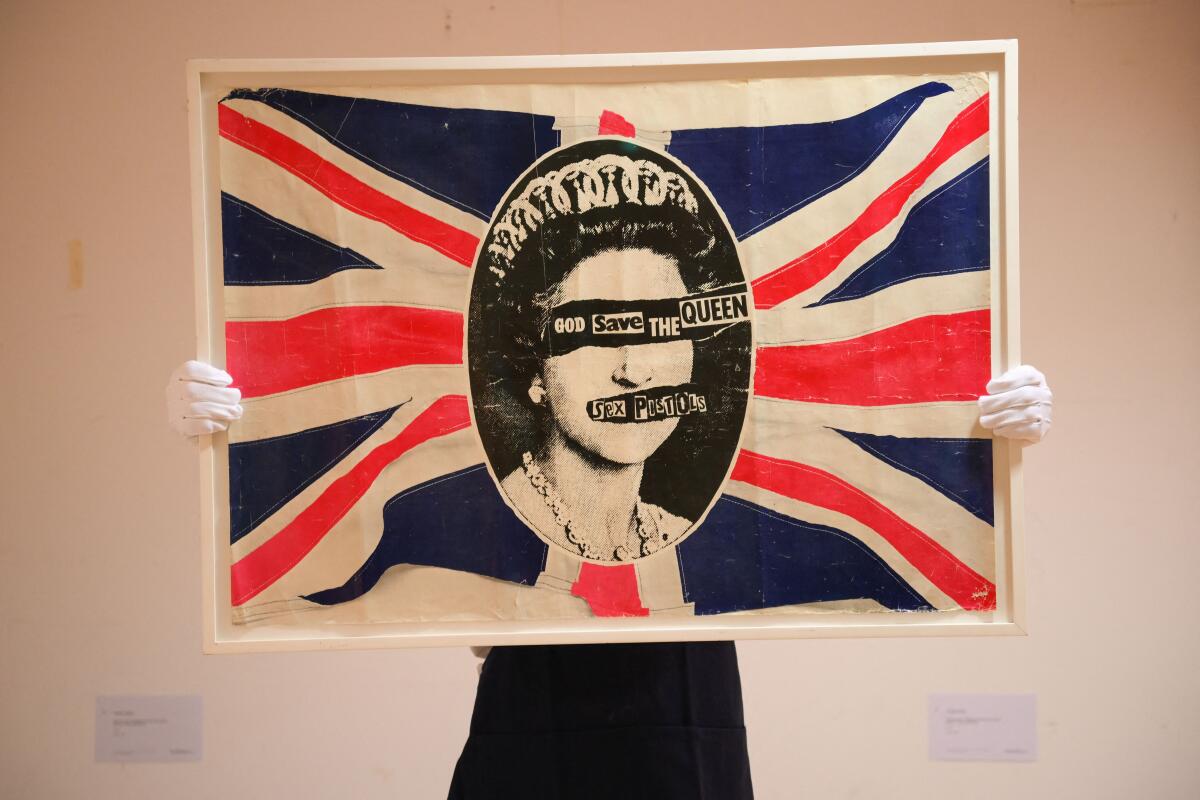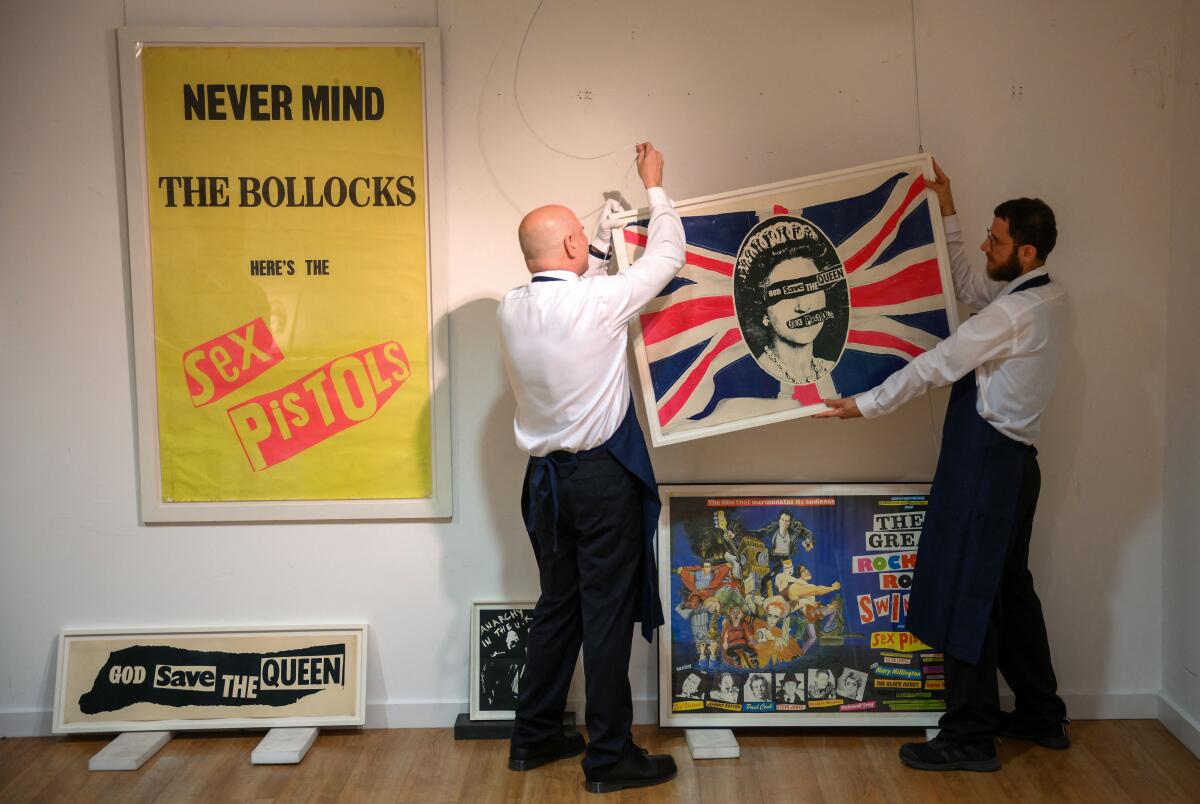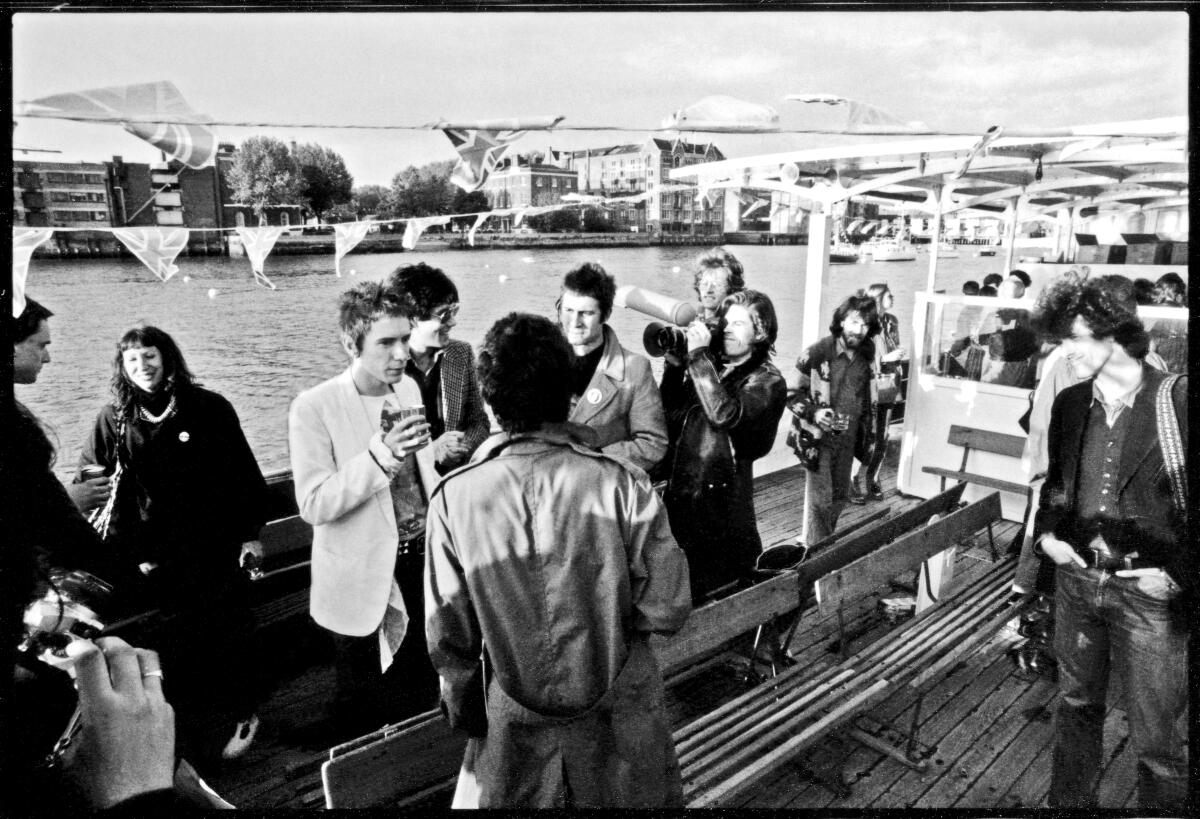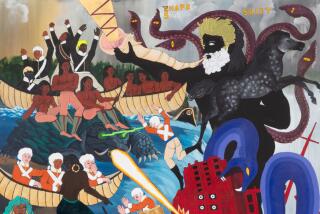Jamie Reid, artist who defined the punk aesthetic with Sex Pistols record covers, dies at 76

Jamie Reid, the iconoclastic British artist who helped define the jagged, cut-and-paste punk aesthetic with his iconic Sex Pistols record covers, died on Tuesday, his gallerist John Marchant announced. He was 76.
Reid aligned himself with the radical anarchist underground since his school days at London’s Croydon School of Art, but it was his designs for the English punk band the Sex Pistols that cemented his status as one of the progenitors of the DIY-style graphic design that came to define punk rock music in the 1970s and remains seminal to this day.
Formed in London in 1975, the Sex Pistols only recorded one full-length studio album, “Never Mind the Bollocks, Here’s the Sex Pistols.” Its supercharged singles, including “Anarchy in the U.K.,” are as famous as Reid’s simple record cover design featuring black and pink lettering over a yellow background, with the band’s name cut out of various fonts in close resemblance to a ransom note.

However, the hugely controversial image that became synonymous with Reid and is forever burned into the iconography of the tumultuous 1970s punk rock era — with its disdain for government, authority and established societal norms — is his poster for the single “God Save the Queen.” Featuring a picture of Queen Elizabeth over the British flag, with her eyes and mouth covered by lettering advertising the song and the band, the image is among one of rock’s most famous designs.
Created in 1977, the picture of the queen that Reid defaced was Peter Grugeon’s official Silver Jubilee portrait, which was taken to commemorate her 25th year on the throne. Since respect for the monarchy was obligatory at that time, the image — and the song — rocked the nation. The song, with its blatant criticism of what it called a “fascist regime” was banned by the BBC but still reached No. 2 on the official U.K. singles chart. An alternative version of the poster created by Reid features the queen with a safety pin through her lip and swastikas for eyes.
Other images Reid created for the Sex Pistols include a shattered empty picture frame for “Pretty Vacant” and a comic strip for “Holidays in the Sun.”
Reid was introduced to the Sex Pistols by their manager, Malcolm McLaren, who met Reid when both men attended Croydon in the late 1960s. During their time at school they were part of a counterculture student movement that organized an occupation of the college.

In a 2008 interview with the Idler, Reid explained his feelings about politics, protest and art in the late 1960s.
“Everyone was looking for alternatives. It was a period of fantastic possibilities and change. People really believed that you could actually change things, and politically, things couldn’t have become more repressed since then,” Reid said.
After leaving Croydon in 1970, Reid co-founded the underground political magazine “Suburban Press,” in which he developed and honed his signature cut-and-paste style.
Born on Jan. 16, 1947, in the London borough of Croydon, Reid was immersed in politics from an early age. In the Idler interview, Reid describes his socialist parents’ belief in “access to freedom of knowledge, education, the whole alternative movement in medicine and health, and health foods but they were as likely to be on trade union and suffragette rallies as be doing rituals at Stonehenge. It was all part and parcel, which is something I’ve really tried to continue myself.”
Reid’s earliest interest in music was informed by his love of American jazz — including artists Charles Mingus, John Coltrane, Pharoah Sanders, Archie Shepp and Ornette Coleman.
“To me it was like a whole peak of 20th century culture. It’s never been surpassed,” he told Idler.
Reid remained attached and ideologically devoted to various counterculture movements throughout his life. He worked with street artist Shepard Fairey, and aligned himself with the Occupy Wall Street movement of 2011 and the protest enacted by Russian feminist punk band Pussy Riot.
Reid’s art is held in museums around the world, including the Tate Britain, New York’s MoMA and Houston’s Museum of Fine Arts. He is survived by his daughter, Rowan, and granddaughter Rose.
More to Read
The biggest entertainment stories
Get our big stories about Hollywood, film, television, music, arts, culture and more right in your inbox as soon as they publish.
You may occasionally receive promotional content from the Los Angeles Times.











